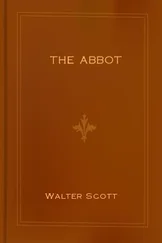Walter Scott - The Betrothed
Здесь есть возможность читать онлайн «Walter Scott - The Betrothed» весь текст электронной книги совершенно бесплатно (целиком полную версию без сокращений). В некоторых случаях можно слушать аудио, скачать через торрент в формате fb2 и присутствует краткое содержание. Год выпуска: 2004, Жанр: Старинная литература, на английском языке. Описание произведения, (предисловие) а так же отзывы посетителей доступны на портале библиотеки ЛибКат.
- Название:The Betrothed
- Автор:
- Жанр:
- Год:2004
- ISBN:нет данных
- Рейтинг книги:3 / 5. Голосов: 1
-
Избранное:Добавить в избранное
- Отзывы:
-
Ваша оценка:
- 60
- 1
- 2
- 3
- 4
- 5
The Betrothed: краткое содержание, описание и аннотация
Предлагаем к чтению аннотацию, описание, краткое содержание или предисловие (зависит от того, что написал сам автор книги «The Betrothed»). Если вы не нашли необходимую информацию о книге — напишите в комментариях, мы постараемся отыскать её.
The Betrothed — читать онлайн бесплатно полную книгу (весь текст) целиком
Ниже представлен текст книги, разбитый по страницам. Система сохранения места последней прочитанной страницы, позволяет с удобством читать онлайн бесплатно книгу «The Betrothed», без необходимости каждый раз заново искать на чём Вы остановились. Поставьте закладку, и сможете в любой момент перейти на страницу, на которой закончили чтение.
Интервал:
Закладка:
"Peace, all the rest of you," said the Lady Eveline; "and do you, my dear Rose, tell me your judgment upon the Count of Gleichen and his two wives."
Rose blushed, and replied, "She was not much accustomed to think of such matters; but that, in her apprehension, the wife who could be contented with but one half of her husband's affections, had never deserved to engage the slightest share of them."
"Thou art partly right, Rose," said Eveline; "and methinks the European lady, when she found herself outshone by the young and beautiful foreign princess, would have best consulted her own dignity in resigning the place, and giving the Holy Father no more trouble than in annulling the marriage, as has been done in cases of more frequent occurrence."
This she said with an air of indifference and even gaiety, which intimated to her faithful attendant with how little effort she herself could have made such a sacrifice, and served to indicate the state of her affections towards the Constable. But there was another than the Constable on whom her thoughts turned more frequently, though involuntarily, than perhaps in prudence they should have done.
The recollections of Damian de Lacy had not been erased from Eveline's mind. They were, indeed, renewed by hearing his name so often mentioned, and by knowing that he was almost constantly in the neighbourhood, with his whole attention fixed upon her convenience, interest, and safety; whilst, on the other hand, so far from waiting on her in person, he never even attempted, by a direct communication with herself, to consult her pleasure, even upon what most concerned her.
The messages conveyed by Father Aldrovand, or by Rose, to Amelot, Damian's page, while they gave an air of formality to their intercourse, which Eveline thought unnecessary, and even unkind, yet served to fix her attention upon the connection between them, and to keep it ever present to her memory. The remark by which Rose had vindicated the distance observed by her youthful guardian, sometimes arose to her recollection; and while her soul repelled with scorn the suspicion, that, in any case, his presence, whether at intervals or constantly, could be prejudicial to his uncle's interest, she conjured up various arguments for giving him a frequent place in her memory.—Was it not her duty to think of Damian often and kindly, as the Constable's nearest, best beloved, and most trusted relative?—Was he not her former deliverer and her present guardian?—And might he not be considered as an instrument specially employed by her divine patroness, in rendering effectual the protection with which she had graced her in more than one emergency?
Eveline's mind mutinied against the restrictions which were laid on their intercourse, as against something which inferred suspicion and degradation, like the compelled seclusion to which she had heard the Paynim infidels of the East subjected their females. Why should she see her guardian only in the benefits which he conferred upon her, and the cares he took for her safety, and hear his sentiments only by the mouth of others, as if one of them had been infected with the plague, or some other fatal or infectious disorder, which might render their meeting dangerous to the other?—And if they did meet occasionally, what else could be the consequence, save that the care of a brother towards a sister —of a trusty and kind guardian to the betrothed bride of his near relative and honoured patron, might render the melancholy seclusion of the Garde Doloureuse more easy to be endured by one so young in years, and, though dejected by present circumstances, naturally so gay in temper?
Yet, though this train of reasoning appeared to Eveline, when tracing it in her own mind, so conclusive, that she several times resolved to communicate her view of the case to Rose Flammock, it so chanced that, whenever she looked on the calm steady blue eye of the Flemish maiden, and remembered that her unblemished faith was mixed with a sincerity and plain dealing proof against every consideration, she feared lest she might be subjected in the opinion of her attendant to suspicions from which her own mind freed her; and her proud Norman spirit revolted at the idea of being obliged to justify herself to another, when she stood self- acquitted to her own mind. "Let things be as they are," she said; "and let us endure all the weariness of a life which might be so easily rendered more cheerful, rather than that this zealous but punctilious friend should, in the strictness and nicety of her feelings on my account, conceive me capable of encouraging an intercourse which could lead to a less worthy thought of me in the mind of the most scrupulous of man—or of womankind." But even this vacillation of opinion and resolution tended to bring the image of the handsome young Damian more frequently before the Lady Eveline's fancy, than perhaps his uncle, had he known it, would altogether have approved of. In such reflections, however, she never indulged long, ere a sense of the singular destiny which had hitherto attended her, led her back into the more melancholy contemplations from which the buoyancy of her youthful fancy had for a short time emancipated her.
CHAPTER THE TWENTY-THIRD
—-Ours is the skie,
Where at what fowl we please our hawk shall flie.
One bright September morning, old Raoul was busy in the mews where he kept his hawks, grumbling all the while to himself as he surveyed the condition of each bird, and blaming alternately the carelessness of the under-falconer, and the situation of the building, and the weather, and the wind, and all things around him, for the dilapidation which time and disease had made in the neglected hawking establishment of the Garde Doloureuse. While in these unpleasing meditations, he was surprised by the voice of his beloved Dame Gillian, who seldom was an early riser, and yet more rarely visited him when he was in his sphere of peculiar authority. "Raoul, Raoul! where art thou, man?—Ever to seek for, when thou canst make aught of advantage for thyself or me!"
"And what want'st thou, dame?" said Raoul, "what means thy screaming worse than the seagull before wet weather? A murrain on thy voice! it is enough to fray every hawk from the perch."
"Hawk!" answered Dame Gillian; "it is time to be looking for hawks, when here is a cast of the bravest falcons come hither for sale, that ever flew by lake, brook, or meadow!"
"Kites! like her that brings the news," said Raoul.
"No, nor kestrils like him that hears it," replied Gillian; "but brave jerfalcons, with large nares, strongly armed, and beaks short and something bluish—"
"Pshaw, with thy jargon!—Where came they from?" said Raoul, interested in the tidings, but unwilling to give his wife the satisfaction of seeing that he was so.
"From the Isle of Man," replied Gillian.
"They must be good, then, though it was a woman brought tidings of them," said Raoul, smiling grimly at his own wit; then, leaving the mews, he demanded to know where this famous falcon-merchant was to be met withal.
"Why, between the barriers and the inner gate," replied Gillian, "where other men are admitted that have wares to utter—Where should he be?"
"And who let him in?" demanded the suspicious Raoul.
"Why, Master Steward, thou owl!" said Gillian; "he came but now to my chamber, and sent me hither to call you."
"Oh, the steward—the steward—I might have guessed as much. And he came to thy chamber, doubtless, because he could not have as easily come hither to me himself.—Was it not so, sweetheart?"
"I do not know why he chose to come to me rather than to you, Raoul," said Gillian; "and if I did know, perhaps I would not tell you. Go to—miss your bargain, or make your bargain, I care not which—the man will not wait for you—he has good proffers from the Seneschal of Malpas, and the Welsh Lord of Dinevawr."
Читать дальшеИнтервал:
Закладка:
Похожие книги на «The Betrothed»
Представляем Вашему вниманию похожие книги на «The Betrothed» списком для выбора. Мы отобрали схожую по названию и смыслу литературу в надежде предоставить читателям больше вариантов отыскать новые, интересные, ещё непрочитанные произведения.
Обсуждение, отзывы о книге «The Betrothed» и просто собственные мнения читателей. Оставьте ваши комментарии, напишите, что Вы думаете о произведении, его смысле или главных героях. Укажите что конкретно понравилось, а что нет, и почему Вы так считаете.





